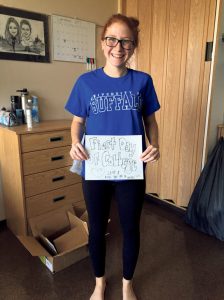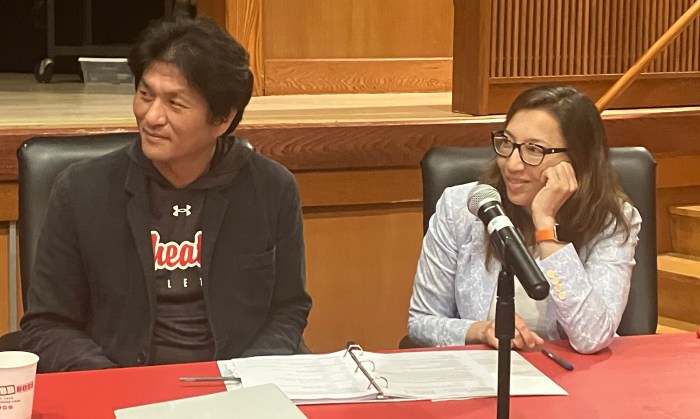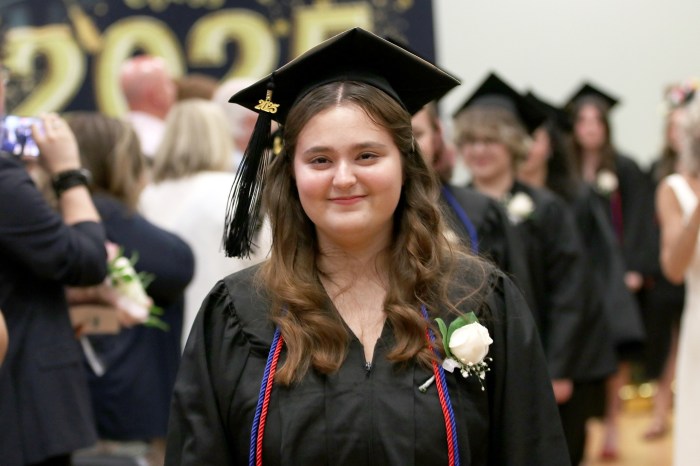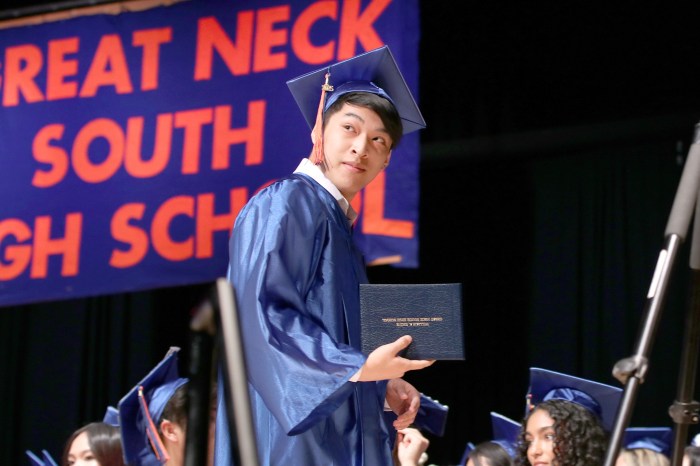By Rudy Malcom
One popular, but likely inaccurate, etymology of “sophomore” is that the word is a portmanteau of two Greek ones: sophos and moros, meaning “wise” and “fool,” respectively. Four graduates from Paul D. Schreiber High School’s Class of 2017 Allison Van Cott at the State University of New York at Buffalo in Buffalo; Maria Kogan at Columbia University in New York; Ryan Tawil at the University of Michigan in Ann Arbor, MI; and Andrew Falzone at the Catholic University of America, in Washington, DC, were asked about their recently completed freshman years. Were they prepared for the transition to college? What have these wise fools learned?
Here are their experiences and insights.
Van Cott described her freshman year as “truly fantastic.” As do many undergraduate students, she enjoys her freedom; what might distinguish her from her counterparts is that doing her own laundry is one of her favorite things about college.
“I have three sisters at home,” she said. “They all steal my clothes, but at Buffalo my laundry is my laundry.”
Despite her laundry-looting siblings, Van Cott, approximately 12 hours away from Port Washington by car, said that she dislikes being far from home. However, she found that having several peers from Long Island—and even a few friends from Port—helped her to develop a sense of belonging at Buffalo.
She identified extracurricular involvement as a factor that, by serving as an easy way to find friends, could generate a similar effect. She noted, however, that entering college with a significant other back at home could complicate this process.
“I wish I hadn’t gone in with a boyfriend because it’s very stressful trying to maintain that relationship when you’re also trying to make new friends,” Van Cott said.
Like Van Cott, Kogan said that she missed her close friends from Paul D. Schreiber High School, but both stressed that they do not miss the drama. Kogan believes she has learned a lot from not gossiping and instead discussing and debating different topics about which she and her friends at Columbia are passionate. Doing so has influenced her major.
Kogan attributed Port Washington’s diversity in comparison with other communities to her lack of a culture shock when she was exposed to such new ideas. She also encouraged rising college freshmen not to underrate their teachers and what they learned in high school. Falzone said he misses being close with his teachers.
“This year in my classes, I had to rely on things I learned in high school, which made me realize how much harder some of the courses must have been for students who didn’t have the same educational background or the same teachers as me, who presented material and taught us to study in certain ways,” Kogan said.
Kogan argued that Schreiber’s rigor and competitiveness prepared her for Columbia courses and grade deflation. Tawil echoed these sentiments, adding that Michigan is more cutthroat than Schreiber.
“High school’s a bit more spoonfed; everything’s thrown at you,” Tawil said. “The teachers and administration do everything they can to help you succeed, but at college it’s kind of everyone for themselves. It’s made me more independent, but I do miss being helped constantly. You’re not helped unless you look for it.”
Indeed, Van Cott said that visiting teaching assistants enabled her
to overcome her struggle with chemistry (though she switched from pre-med to business in May). Tawil, however, regrets not having sought out his professors.
Kogan recommended that rising college freshmen not load up on classes first semester, but instead adventure into their surrounding areas and hone their time management and study skills. She also emphasized the importance of finding a support system early on, which she said helped her to cope with her injured leg in the fall.
Tawil said that his fraternity brothers have served as valuable mentors as he explores his business interests.
Falzone called discovering the right friends the hardest part of his year. Over winter break, after an unhappy fall semester, he decided that Catholic was not the best fit and completed transfer applications to other universities. However, he branched out more upon returning for second semester and began to discover and appreciate the resources Catholic had to offer (beyond Frisbee with nuns), like study abroad in Rome for Italian majors. He advised rising freshmen to be open-minded about college.
“Going in, you have expectations based in part on how the media can portray college,” said Falzone. “When I went in I thought everything would come to me, that I’d have all the friends, that I’d have a great time every single day, but college is what you make it to be. It’s not just going to fall into your hands. You have to work for it.”



































